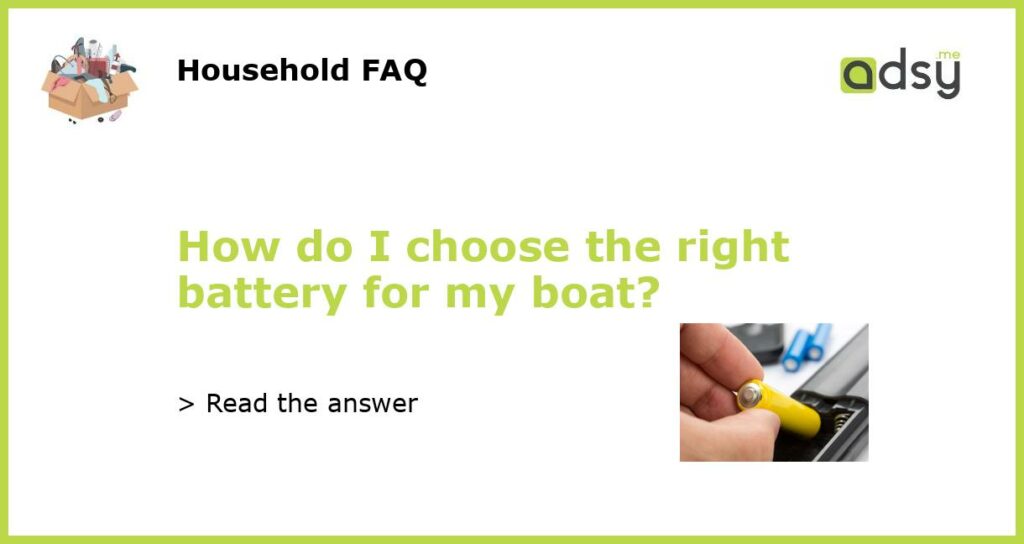Understanding the Basics of Boat Batteries
Before choosing the right battery for your boat, it’s important to understand the basics of boat batteries. Boat batteries are typically deep cycle batteries, designed to provide a continuous supply of power over an extended period of time. They are different from automotive batteries, which provide a high burst of power for starting the engine.
There are three main types of boat batteries: lead-acid, gel, and AGM (Absorbent Glass Mat). Lead-acid batteries are the most common and least expensive option. Gel batteries are maintenance-free and can withstand deep discharges. AGM batteries, on the other hand, are spill-proof, vibration-resistant, and have a longer lifespan.
Determine Your Power Requirement
The first step in choosing the right battery for your boat is to determine your power requirement. Consider the electrical devices you have on board, such as lights, radios, fish finders, and GPS systems, as well as their power consumption. Additionally, think about how long you typically spend on the water and how frequently you use these devices.
Once you have a clear understanding of your power requirement, you can calculate the ampere-hour (AH) rating needed for your battery. This rating measures the amount of energy a battery can deliver over a specific period of time. To calculate it, multiply the average power consumption by the number of hours you plan to use the devices. This will give you the minimum AH rating your battery should have.
Consider the Size and Weight
The size and weight of the battery are important factors to consider when choosing the right battery for your boat. Depending on the available space on your boat, you may need to opt for a smaller battery. It’s also important to consider the weight of the battery, as it can affect the stability and fuel efficiency of your boat.
If you have limited space, you might want to consider AGM batteries, as they are usually smaller and lighter than lead-acid batteries. Gel batteries are also a good option if you’re looking for a maintenance-free and vibration-resistant battery that won’t leak.
Consider the Battery’s Lifespan and Maintenance Needs
The lifespan and maintenance needs of the battery are other important factors to consider. Lead-acid batteries require regular maintenance, such as checking and refilling the electrolyte levels, while gel and AGM batteries are maintenance-free. AGM batteries are known for their longer lifespan compared to other types of batteries.
Consider your personal preference and how much time and effort you’re willing to invest in maintaining your battery. If you prefer a low-maintenance option with a longer lifespan, AGM batteries might be the best choice for you.
Choose a Reputable Brand
When choosing a battery for your boat, it’s important to choose a reputable brand known for their quality and reliability. Look for reputable manufacturers that specialize in marine batteries, such as Exide, Optima, or Trojan. Buying from a trusted brand ensures that you’re getting a high-quality battery that will perform well and last long.
Read customer reviews and check for any warranties or guarantees offered by the manufacturer. A reputable brand will often provide a warranty to guarantee the performance and lifespan of their batteries.






